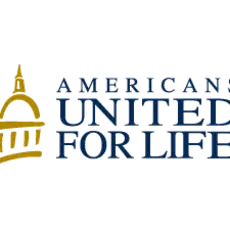The anti-choice movement has for several years been experiencing a quiet rift over extreme state-level measures would ban all abortions – and in some cases, in vitro fertilization and some forms of birth control – in a head-on challenge to Roe v. Wade. As Personhood USA and Janet Porter gain more and more success in pushing “personhood” and “heartbeat” bills at the state level, national pro-life groups who oppose the laws for strategic reasons find themselves in a bind.
In March, when North Dakota passed a “heartbeat” bill which would ban nearly all abortions in the state and strike directly at Roe v. Wade, it also passed two narrower measures banning abortion based on genetic abnormalities or the sex of the fetus. The national anti-choice group Concerned Women for America praised heartbeat the bill, while Americans United For Life issued press releases that ignored the bill and praised the narrower measures. National Right to Life went even further, actively speaking out against the North Dakota bill and similar “heartbeat” measures in other states.
In an article for the National Catholic Bioethics Quarterly this week, Americans United For Life’s senior counsel, William Saunders, lays out his fears of what would happen if the Supreme Court were given the opportunity to reconsider Roe v. Wade. While he praises the “admirable and inspiring” efforts behind the trio of new abortion restrictions in North Dakota, Saunders warns that a direct challenge to Roe will give the Supreme Court a chance to rewrite their 1973 decision on more solid “equal protection” footing.
Instead, he argues, anti-choice activists should target incremental measures at wearing away the opposition of Justice Anthony Kennedy, who voted to uphold the so-called “partial birth” abortion ban in Gonzales v. Carhart. “Can the statute be fashioned so as to make it as easy as possible for him (and the others) to go the one step (or two or ten) further than Gonzales in restricting abortion?,” he asks.
Taken together, these three laws provide significant food for thought.
While the persistent efforts of pro-life Americans at the state level are admirable and inspiring and must be encouraged, how does one evaluate the wisdom of any particular proposed (or enacted) law? First, I suggest, one must recognize the legal realities—what kinds of statutes will the courts certainly overturn? Of course, this is not to say that the courts should govern this matter. In fact, the usurpation of the political process by courts is, in my view, unconstitutional itself and should be resisted. However, if we know a law will be overturned by a court, we should consider the risk of such a decision. At least one significant risk is that the Supreme Court, in overturning a law, will entrench “abortion rights” more firmly in constitutional jurisprudence, perhaps under an “equal-protection”-based right, as Justice Ginsburg and three colleagues wanted to do in the Gonzales dissent.
Sad as it is to consider, Gonzales was decided by only one vote, that of Justice Anthony Kennedy. The opinion he wrote for the majority, while speaking of the right of the legislature to choose among divided experts in fashioning law and while recognizing that abortion harms at least some women, did no more than uphold the outlawing of one abortion procedure when others were available. Is such a person likely to uphold a ban on all abortions at any point in pregnancy? If so, what rationale for doing so (what basis) is likely to appeal to him? Can the statute be fashioned so as to make it as easy as possible for him (and the others) to go the one step (or two or ten) further than Gonzales in restricting abortion? Might a statute with a ban (or limit) early in pregnancy lead him to “protect” the “abortion right” and vote with Ginsburg and her colleagues in favor of a firm affirmation of a “constitutional” right to abortion? Is it better to move the ball gently, seeking to build momentum for the ultimate reversal of Roe/Doe, or to force the issue with a broad and early ban? While reasonable people can differ on the answers to these questions, the consequences of a possible forty more years of unlimited abortion due to another Casey-like decision by the Supreme Court counsels for very careful consideration of what prudence requires.






